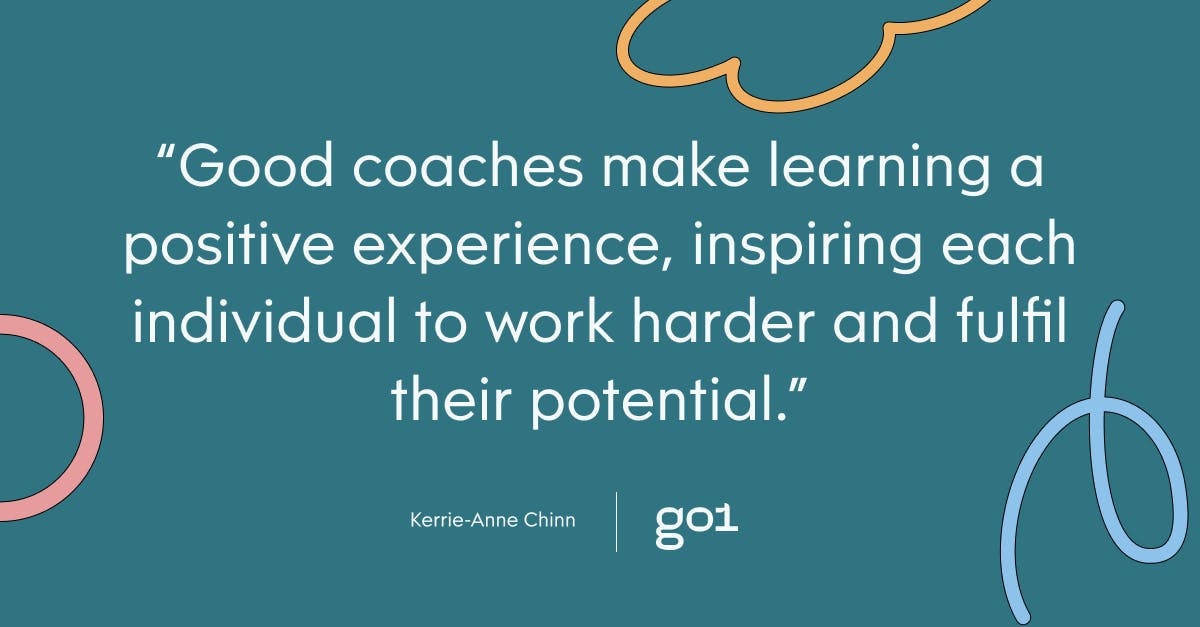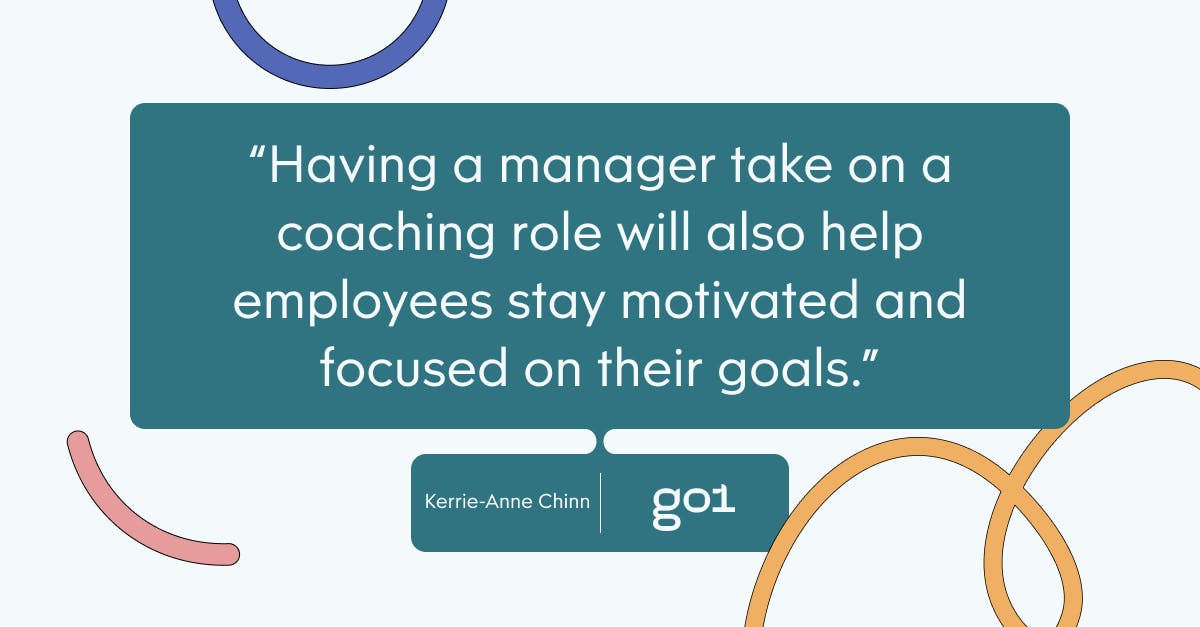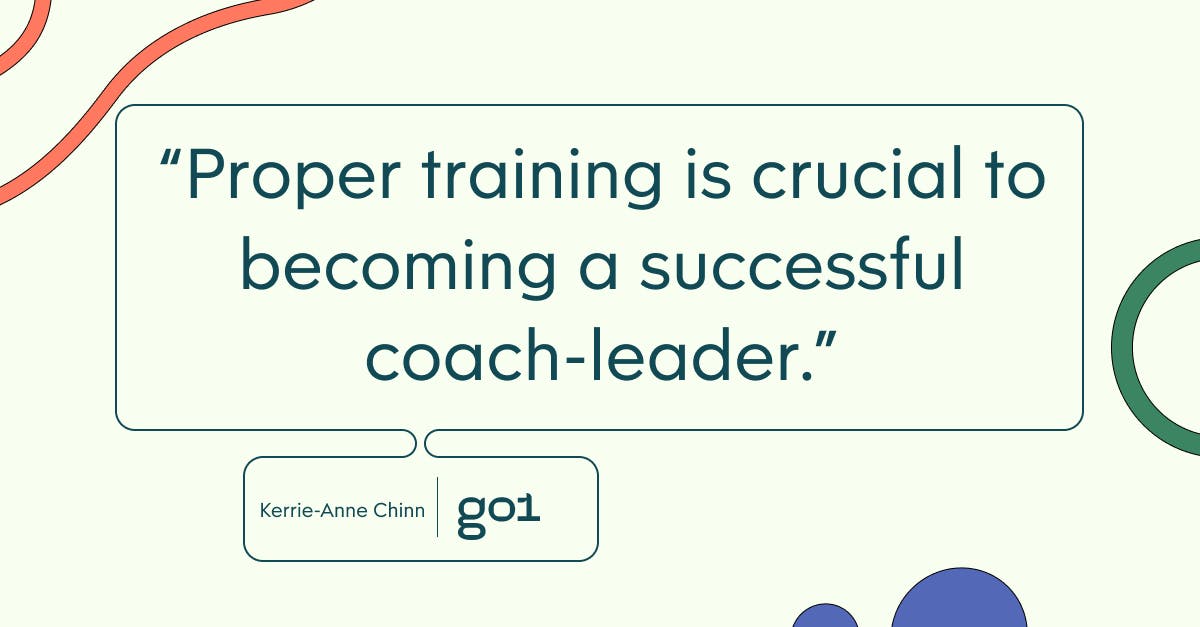
Why coaching is an important skill for leaders

Can you think of an amazing coach you’ve had in the past? Maybe you had an outstanding sporting coach or perhaps a teacher at school who went above and beyond. Either way, you’re not likely to forget it. Good coaches leave a lasting impression, making learning a positive experience and inspiring each individual to work harder and fulfil their potential.

Can you say the same for the managers you’ve had throughout your career? Just because someone is in a management role, doesn’t always mean they have strong coaching skills.
As with any sport, workplace coaching should focus on improving each employee's skills by setting goals, monitoring performance, and providing feedback.
More and more, organisations are enjoying the benefits of coaching for both employees and the business more broadly. While many employers hire external coaches to work with staff, it’s also a good idea to build coaching into your company’s leadership methodology and ethos. This way, managers can develop their coaching skills and get the best out of their teams long-term.
With this in mind, we'll take you step-by-step through the importance of coaching for leaders. We'll start by sharing how to incorporate coaching into your business philosophy, before looking at adopting a coaching mindset and finally, offering practical coaching tips for managers.
Incorporating coaching into your business philosophy
Hiring external coaches to work with employees is an increasingly common trend. According to the Academy of Leadership Coaching (ALC), while hiring coaches for leaders is widely accepted, training managers to become coaches within their teams is not as widely practised. Yet.
On the other hand, when you provide proper training for managers, you’re helping them develop the right coaching skills to benefit the organisation. With this mindset, coaching becomes a critical part of professional development at all corporate levels and a component of the entire business philosophy.
Incorporating coaching into your leadership role will help managers effectively motivate their team and connect with them on a deeper level. As ACL adds, “it helps the leader to develop trust among team members and create an emotionally centred work environment.”
Becoming a manager with a coaching mindset
So, what do managers do differently when they lead from a coaching mindset?
Think about the difference between managers who tell employees what to do and managers who take time to work with employees on their professional development. This commitment to coaching is the key difference between the two leadership mindsets.
Successful managers know how to support and encourage employees, helping them maximise their potential and achieve their career goals.
Having a manager take on a coaching role will also help employees stay motivated and focused. When there’s someone else you’re accountable to, who has placed a lot of time and energy into your career, you’ll want to consistently deliver your best work.

A good coach can also help identify potential gaps in your skill set and push you to learn new skills and achieve new personal goals.
The benefits of leadership coaching
The benefits of leadership coaching are far-reaching, with numerous studies concluding that leadership coaching has significant advantages for employees and businesses alike.
For example, a survey by the Institute of Coaching found that 70% of individuals who receive coaching noticed improved work performance, relationships, and more effective communication skills. What's more, 86% of surveyed companies felt they recouped the investment they made into coaching — plus more on top.
Additionally, Sounding Board's 2021 Leadership Coaching Report outlined the incredible benefits of leadership coaching. According to their research, 67% of respondents said leadership coaching increased employee engagement and satisfaction, while a further 60% said it improved employees’ perceptions of the quality of leadership.

Moreover, 50% of respondents said leadership coaching improved productivity. Finally, 44% said it improved the quality of work.
Despite this, many organisations still encountered roadblocks, with a startling 41% saying the organisational culture does not support leadership coaching. Plus, 35% said leadership buy-in is a challenge in obtaining support for leadership coaching.
Ultimately, these statistics show the wide-ranging benefits of leadership coaching, from increased profitability to improved employee engagement and productivity. However, many teams still have a long way to go to realise these benefits, with organisational roadblocks preventing them from reaping the rewards of leadership coaching.
Coaching tips for managers
Now that we understand the significant benefits of leadership coaching, it's time to start working on your coaching skills as a manager.
The Academy of Leadership Coaching believes there are specific characteristics that a leader must possess to successfully coach their team.
“Coaching is not just about communication, it is about connecting on a deeper level,” ALC explains. It’s about positively connecting with your employees.
Here are some of the characteristics of a good coach-manager, according to ACL.
- Non-authoritative – coach and employee work cooperatively to reach the predefined goals. The coach is only in charge of the process and structure but is not responsible for setting the agenda or leading the discussions.
- Active listener – the coach is mentally present within the coaching conversation. They ask clarifying questions and listen carefully to understand the employee's core concerns and objectives.
- Powerful questions – ask open-ended questions rather than those that elicit a yes or no response. Use questions that start with words such as what, how, when and where.
- No hidden agendas – an effective coach does not have an emotional attachment to situations described by the employee. They are honest, direct, and respectful.
- Provide direction – the coach should provide the employee with tasks that will help them move toward their goal and produce the desired transformation.
Key leadership skills
Further, Sounding Board's 2021 Leadership Coaching Report identified the most crucial and hard-to-develop skills for leaders, thereby providing an excellent checklist of skills for prospective leaders to focus on. These include:
- Self-awareness
- Communication
- Managing change
- Strategic thinking
- Diversity, equity, and inclusion
- Conflict resolution
- Execution
- Executive presence
- Leading high-performing teams
- Setting vision
- Collaboration
- Decision making
- Influencing others
- Developing others
- Interpersonal skills
- Time management
They break this down further, explaining, "for emerging leaders, interpersonal skills and execution were also identified among the most important leadership capabilities. For mid-level managers, execution and leading high-performing teams were also reported
among the most important capabilities. For senior and executive leaders, strategic thinking and setting vision and direction were among the most important leadership capabilities. Self-awareness and communication were also reported as the most difficult capabilities to develop in organizations, followed by managing change and strategic thinking."

Remember, proper training is crucial to becoming a successful coach-leader. To learn more, see Go1’s professional development training courses, including our course on Coaching Skills for Leaders and People Managers, to start building a coaching mindset into your leadership role.
For more insights, subscribe to the Go1 newsletter to stay on top of all the latest L&D trends. Or, you can book a demo today to find out how Go1 can help with your team’s learning needs.




